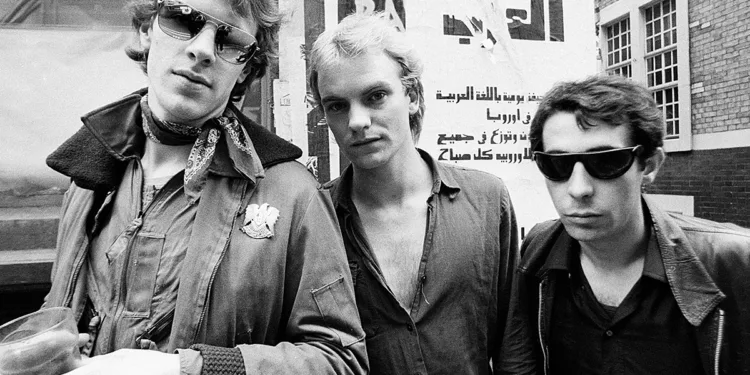Sting may return to the limelight every couple of years with a new album and world tour, but more and more now, the former Police frontman is content in his achievements. And looking back he admits he’s never been more reassured that, at the time of the band’s highest ebb, he chose to go it alone.
He is Sting, he is Gordon Sumner, he is the ex-frontman of one of the most pioneering bands of the post-punk era, who has sold 75 million records worldwide. Yet for someone so entrenched in rock ‘n’ roll folklore, the 71-year-old frontman is impeccably calm; reserved, even. It is a modus operandum that has followed the Geordie around for four decades and more.
Last year, Sting released his latest album, Duets – a glance back over 17 collaborations as a solo artist. The title reflects, as much, the break-up of The Police, and the fact that, despite a 151-date reunion tour in 2007, the singer/songwriter has always been someone never happier than when ploughing a lone furrow through music.
“I’ve always been totally comfortable as a solo artist,” he says. “It’s a way of working that gives me my own freedom, my own space and lets my own imagination come to the fore.
“Of course having band mates around you can be great fun, and we did have that for a while, but the majority of my career has been just me, and that doesn’t happen by accident.
“It’s not a power thing,” he says, perhaps referencing the acrimonious fallouts he has had over the years with former cohorts Andy Summers and Stewart Copeland, “it’s just about producing exactly the brand and style of music that feels right for you.
“Music, in every form, is a collaborative process, but never more so in a band, where you have to consider other people almost more than you do yourself.
“To have total creative freedom is, for me, the ultimate thrill of being a solo artist.”
The songwriter, here and now, is, ultimately, a man at peace. He is reflective, settled in his achievements, and undoubtedly driven by creative satisfaction rather than anything cloaked in industry awards or dollar bills.
“It’s great fun to have a hit record, it really is, but it’s not why I make music, and it never has been, to be honest. It’s easy to get swept along in the excitement of the charts – a lot more so in the Eighties than it is today – but the truth is I make records out of love and curiosity, even if it’s always nice to have something on the radio.”
For someone who has recently celebrated five decades of songwriting, and whose music has crossed multiple genres – rock, pop, folk, reggae and new wave being in particular abundance – Sting’s influences continue to harness breadth and bravery. “When I make a record I want to go on a journey. I need to learn as much about music as the listener – that’s really important to me.
“I’m always trying to broaden what I listen to. Everything I’ve ever heard – bad, good and indifferent – has conditioned my opinions about music. I don’t believe there are any bad experiences.”
Indeed, Sting is a man of culture and influence that stretches way beyond the sound that emanates from a speaker. Long before The Police signed their first record deal with A&M in 1977, the musician’s pursuit of experience saw him immerse himself in the brutally diverse environments of building sites, office spaces and even school staff rooms.
“I liked all of those jobs, albeit in very different ways,” he said. “I was never embarrassed about any of the jobs I did – they all connected me with real worlds, and it wasn’t until I was 26 that the music industry presented itself to me.
“I’m glad of that,” he says. “I’m glad I had many years of struggle and obscurity because that has only helped my psychology.
“If I hadn’t had so long on the other side, I’m not sure how I would have survived fame.”










